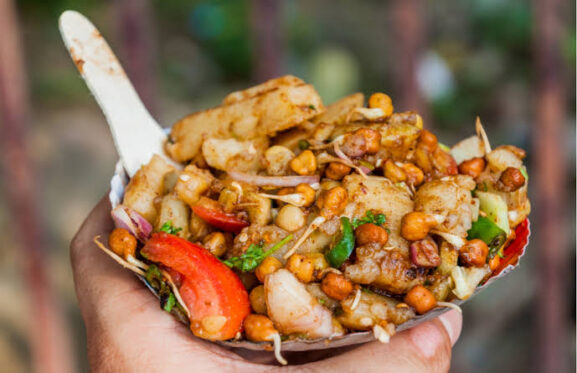Snack Etiquette in Nigeria
Snack etiquette in Nigeria reflects the country’s diverse culture and traditions. With a rich culinary heritage, snacks in Nigeria aren’t just food; they’re often social experiences, shared among family, friends, and colleagues.
Understanding the etiquette around Nigerian snacks can help you navigate various social settings and show respect for local customs.
This guide explores some key elements of snack etiquette in Nigeria, including when and where it’s appropriate to snack, common snacks you’ll encounter, and how to properly enjoy them.
Understanding Nigerian Snack Culture
In Nigeria, snacks are a part of everyday life, from roadside vendors offering small treats to elaborate snacks served at parties and gatherings.
Snacks like puff-puff, chin chin, suya, and roasted plantains (bole) are common across the country, and they’re enjoyed in various social settings. Snack time can often be a time of connection, as sharing food is an essential aspect of Nigerian culture.
Key Aspects of Snack Etiquette in Nigeria
1. Sharing is Caring
Sharing is a fundamental part of Nigerian snack culture. If you’re enjoying a snack around friends, family, or colleagues, it’s customary to offer to share it. This practice is especially important if you’re in a small group or someone is seated nearby. In Nigeria, offering a piece or portion of your snack shows friendliness and inclusivity.
Example: If you’re enjoying some chin chin or peanuts, offer some to those around you before eating. They may decline, but the gesture is always appreciated.
2. Respecting Personal and Public Spaces
While snacking in public is generally accepted in Nigeria, it’s courteous to be mindful of your surroundings. For example, eating on public transportation or in shared spaces like an office may be acceptable, but be aware of the potential for mess or strong aromas, especially if the snack is spicy or aromatic.
Example: Suya, a popular spicy grilled meat, has a strong aroma that can fill a room. If you’re in a shared space, try to find a more open area to enjoy it or wait until you’re in a less confined space.
3. Using Your Right Hand
In Nigeria, it’s traditional to use your right hand for eating or serving food, including snacks. This custom stems from a cultural respect associated with the right hand in many Nigerian communities. Using your left hand for food is often seen as impolite, especially when offering or receiving food from someone else.
Example: If you’re passing around a tray of puff-puff or plantain chips, be sure to use your right hand, as this is viewed as respectful.
4. Avoid Wasting Food
Food holds significant value in Nigerian culture, and wasting food is generally frowned upon. Nigerians are often taught from a young age to value every meal or snack they have.
This respect extends to snacks, so if you take a portion, it’s polite to finish it. If you’re not sure about a particular snack, start with a small amount before deciding if you want more.
Example: If you’re trying a new snack like kilishi (spicy beef jerky) for the first time, it’s okay to take a small piece to see if you like it before taking more.
SEE ALSO:
Best Nigerian Drinks To Pair With Snacks
Best Snacks For Long Road Trips
High Protein Snack Recipes For Everyone
Dairy-Free Snacks For Lactose-Intolerant Individuals
5. Offering Gratitude
When someone offers you a snack, it’s courteous to show appreciation, even if you choose not to eat it. Accepting snacks, especially when visiting someone’s home, is seen as a sign of respect and gratitude. Even if you decline a snack, a polite “thank you” is appropriate.
Example: If a host offers you akara (fried bean cakes) and you’re not hungry, politely decline by saying something like, “Thank you, but I’m fine for now.”
6. Enjoying Street Food Mindfully
Street food vendors are popular in Nigeria, offering various snacks like roasted corn, groundnuts, and meat skewers. It’s polite to pay attention to the vendor, ask questions respectfully, and thank them after your purchase. Also, avoid bargaining excessively for very small amounts, as this may come off as disrespectful given the affordable nature of most snacks.
Example: If you’re buying roasted corn by the roadside, a simple thank you and a smile go a long way in showing appreciation to the vendor.
Popular Nigerian Snacks and How to Enjoy Them
- Puff-Puff: Fried dough balls that are soft and slightly sweet. Often shared among friends or served at gatherings, puff-puff is typically eaten with the hands and can be paired with a drink.
- Suya: Spicy grilled meat skewers, often enjoyed as a nighttime snack. Suya is usually eaten with onions and tomatoes, and it’s customary to share it among friends.
- Plantain Chips: Thinly sliced and fried plantains, perfect for snacking on the go. Plantain chips are widely available from street vendors and are often enjoyed without any formal setting.
- Bole: Roasted plantains, typically served with groundnut or pepper sauce. Bole is usually eaten with the hands, especially when bought from a roadside vendor.
- Akara: Fried bean cakes often enjoyed for breakfast or as a snack. Akara is best enjoyed hot, and sharing it is common when eating with family or friends.
FAQs on Snack Etiquette in Nigeria
Can I eat snacks in public in Nigeria?
Yes, eating snacks in public is generally acceptable in Nigeria. Street food and snacks are commonly enjoyed in public spaces, but it’s good to be mindful of your surroundings, especially in more formal or crowded areas.
Is it okay to refuse a snack if someone offers it to me?
Yes, you can politely refuse a snack if you’re not hungry or prefer not to eat it. A simple “thank you” or “not right now, but thank you” is polite and acceptable.
Is it rude to ask for more snacks?
It’s generally fine to ask for more snacks if they’re being offered openly, such as at a party or family gathering. However, it’s good to be mindful and take only as much as you’ll eat to avoid wasting food.
Can I eat snacks during a business meeting in Nigeria?
Eating snacks during a business meeting depends on the setting. If snacks are provided, it’s fine to enjoy them, but avoid snacking on personal items in more formal meetings unless invited to do so.
Final Thoughts
Snack etiquette in Nigeria is about more than just food; it reflects the values of hospitality, respect, and community. Understanding these customs can enhance your experience when enjoying Nigerian snacks, whether you’re at a gathering, in a public space, or visiting someone’s home.
By following these simple guidelines, you’ll not only enjoy the diverse flavors of Nigerian snacks but also show respect for local traditions and customs.
Whether you’re sharing puff-puff with friends or enjoying suya from a street vendor, Nigerian snack etiquette is a meaningful part of the country’s rich and vibrant culture.



